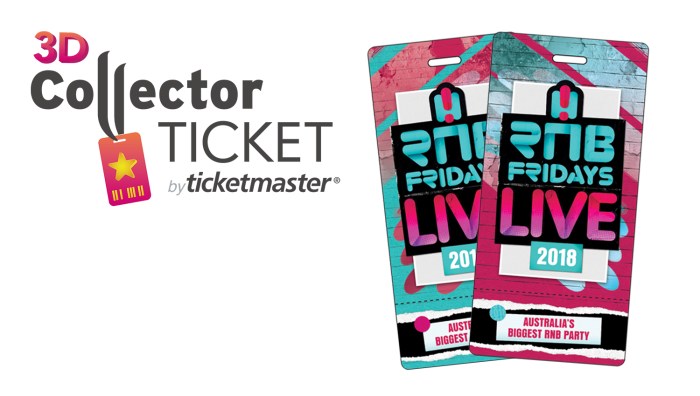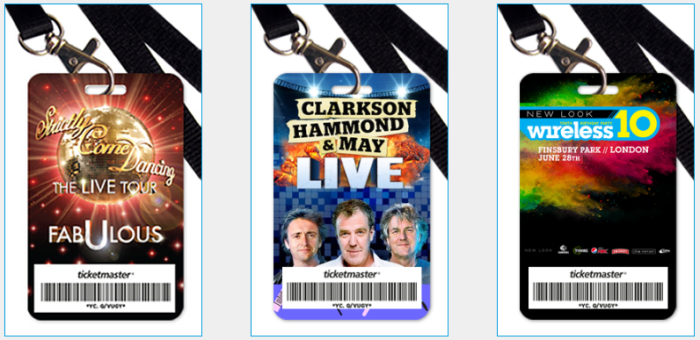What Is A Collector Ticket? Dive into the fascinating world of collector tickets, where history, passion, and investment converge. From their captivating designs to their potential value, collector tickets offer a unique and rewarding hobby for enthusiasts of all ages.
In this comprehensive guide, we’ll delve into the intricacies of collector tickets, exploring their definition, features, value, market dynamics, storage techniques, and the captivating hobby of collecting them.
Collector Ticket Definition: What Is A Collector Ticket
A collector ticket is a specialized type of ticket issued to collectors of various items, such as stamps, coins, or other collectibles. It serves as proof of ownership and authenticity for the collected item and is often highly sought after by collectors due to its rarity and historical significance.Collector
tickets are typically issued by official organizations or authorities responsible for managing and authenticating collectibles. They may include detailed information about the item, such as its description, date of issue, and any relevant historical context. The purpose of a collector ticket is to provide collectors with a tangible and verifiable record of their ownership, enhancing the value and credibility of their collection.
Types of Collector Tickets
There are various types of collector tickets, each catering to specific areas of collecting:
Stamp Collector Tickets
Issued by postal authorities to certify the authenticity and rarity of stamps. These tickets often feature detailed descriptions of the stamp’s design, printing process, and historical significance.
Coin Collector Tickets
Issued by mints or numismatic societies to verify the authenticity and grade of coins. They provide information about the coin’s metal composition, weight, and any special features or mint marks.
Art Collector Tickets
Understanding the concept of a collector ticket is crucial for collectors seeking rare and valuable items. While delving into this topic, it’s worth noting that for the latest news on Iran and Israel, you can visit this informative site . Returning to our discussion on collector tickets, it’s essential to grasp the nuances of this specialized field to enhance your collecting experience.
Issued by art galleries or museums to document the provenance and authenticity of artwork. These tickets may include details about the artist, the artwork’s medium, and its exhibition history.
Collector tickets offer a unique way to enhance your concert experience. They often include perks like exclusive merchandise, early entry, and meet-and-greets. For instance, the Taylor Swift Store offers collector tickets for her upcoming tour that include a limited-edition lithograph and a VIP lanyard.
These tickets are a great way to make your concert experience truly unforgettable.
Sports Memorabilia Collector Tickets
Issued by sports organizations or memorabilia companies to certify the authenticity of sports-related items, such as autographed jerseys, game-used equipment, or championship rings.
Collector Ticket Features

Collector tickets, also known as commemorative tickets, are distinguished by a set of unique characteristics that enhance their value and appeal to collectors. These features not only contribute to their aesthetic appeal but also serve specific purposes in preserving and authenticating the ticket’s rarity and significance.
Let’s delve into the common features of collector tickets and explore their significance:
Design and Artwork
Collector tickets often feature elaborate and visually striking designs that reflect the event or occasion they commemorate. These designs may incorporate historical motifs, symbolic imagery, or artistic representations of the event’s significance. The artwork on a collector ticket is not merely decorative; it serves to capture the essence of the event and create a lasting visual impression.
Limited Edition
Collector tickets are typically produced in limited quantities, making them exclusive and sought-after by collectors. The limited edition status ensures that the ticket retains its value and desirability over time. The number of tickets produced is often clearly indicated on the ticket itself, adding to its authenticity and collectibility.
Special Materials and Printing Techniques
Collector tickets are often printed on high-quality paper or other durable materials to ensure their longevity and preservation. Special printing techniques, such as embossing, foiling, or UV coating, are employed to enhance the ticket’s visual appeal and protect it from wear and tear.
These techniques not only add to the ticket’s aesthetic value but also serve as a deterrent against counterfeiting.
Authentication and Security Features, What Is A Collector Ticket
To protect against forgery and ensure authenticity, collector tickets often incorporate various security features. These features may include watermarks, holograms, or unique serial numbers. Authentication features are essential in maintaining the integrity of the ticket and preventing unauthorized duplication or manipulation.
Visual Representation of a Collector Ticket with Labeled Features
[Image of a collector ticket with labeled features, including design, limited edition number, special printing techniques, and authentication features]
Collector Ticket Value

The value of a collector ticket is determined by several key factors, including its rarity, condition, and demand.
Rarityrefers to how many of a particular ticket were produced. The fewer tickets that were produced, the rarer it is and the more valuable it will be. Conditionrefers to the physical state of the ticket. A ticket that is in mint condition, with no tears or creases, will be worth more than a ticket that is damaged or worn.
Demandrefers to how many people are interested in buying a particular ticket. The more people who want a ticket, the higher its value will be.
Assessing the Value of Collector Tickets
There are several ways to assess the value of a collector ticket. One way is to look at the prices that similar tickets have sold for in the past. Another way is to get an appraisal from a professional. You can also use online resources to research the value of collector tickets.
Collector Ticket Market
The collector ticket market is a thriving global industry that caters to enthusiasts and collectors of rare and valuable tickets. These tickets are often associated with major sporting events, concerts, festivals, and historical events, and they hold significant sentimental or monetary value.
The market is diverse and includes various types of buyers and sellers. Collectors are primarily driven by the desire to own a piece of history or a unique item that represents their interests or passions. Investors, on the other hand, view collector tickets as a potential investment with the potential for appreciation in value over time.
Buying and Selling Collector Tickets
Buying and selling collector tickets can be done through various channels, including online marketplaces, auction houses, and specialized dealers. Online marketplaces like eBay and StubHub offer a wide selection of tickets, while auction houses like Sotheby’s and Christie’s handle high-value and rare items.
When buying collector tickets, it’s essential to research the authenticity and condition of the item. Reputable sellers should provide clear images, descriptions, and any relevant documentation to verify the ticket’s legitimacy. It’s also important to consider the seller’s reputation and track record in the market.
Selling collector tickets requires proper preparation and marketing. Sellers should determine the value of the ticket based on its rarity, condition, and historical significance. It’s recommended to seek professional appraisal services for high-value tickets to ensure an accurate assessment.
Proper storage and handling are crucial to preserve the value of collector tickets. Collectors should store tickets in a climate-controlled environment away from direct sunlight and moisture. Protective sleeves or cases can also help protect the tickets from damage.
Collector Ticket Storage and Preservation
Collector tickets, like any valuable collectible, require proper storage and preservation to maintain their condition and value. Improper handling, storage, or exposure to environmental factors can damage or deteriorate the tickets, reducing their worth and aesthetic appeal.
To ensure the longevity and preservation of your collector tickets, it’s essential to adhere to proper storage and handling techniques.
Handling
- Always handle collector tickets with clean, dry hands. Avoid touching the surface of the ticket directly, as oils and dirt from your fingers can transfer and damage the paper or ink.
- Use soft, cotton gloves when handling valuable or delicate tickets. Gloves provide an extra layer of protection and prevent fingerprints or smudges.
- Never fold, bend, or crease collector tickets. Keep them flat and avoid any unnecessary stress or pressure on the paper.
Storage
- Store collector tickets in a cool, dry, and dark environment. Avoid exposing them to direct sunlight, heat, or moisture, as these factors can cause fading, discoloration, or warping.
- Use archival-quality protective sleeves or cases to protect the tickets from dust, dirt, and handling damage. These sleeves are made of acid-free materials that won’t harm the tickets over time.
- Consider storing valuable collector tickets in a climate-controlled environment, such as a safe deposit box or a temperature- and humidity-controlled storage facility.
Archival Materials
- Archival materials are essential for preserving collector tickets. These materials are acid-free, lignin-free, and meet specific standards to ensure they won’t damage or deteriorate the tickets over time.
- Use archival-quality sleeves, folders, and boxes to store and protect your collector tickets. These materials are designed to prevent fading, discoloration, and other forms of damage.
- Avoid using materials like rubber bands, paper clips, or tape, as they can damage the tickets or leave behind residue.
Collector Ticket Collecting

Collector ticket collecting is a popular hobby that involves acquiring and preserving tickets from various events, such as concerts, sporting events, and exhibitions. Collectors often seek out rare or unique tickets, and some may specialize in collecting tickets from a particular artist, team, or venue.
Motivations for Collecting Collector Tickets
There are many reasons why people collect collector tickets. Some collectors enjoy the thrill of the hunt, searching for rare or unique tickets. Others appreciate the historical significance of tickets, as they can provide a glimpse into past events and cultures.
Still others collect tickets as a way to connect with their favorite artists or teams.
Tips for Starting and Maintaining a Collector Ticket Collection
Starting a collector ticket collection is relatively easy. The first step is to decide what type of tickets you want to collect. Once you have a focus, you can start acquiring tickets through online marketplaces, hobby shops, or directly from event organizers.Maintaining
a collector ticket collection requires proper storage and preservation. Tickets should be stored in a cool, dry place away from direct sunlight. They should also be protected from moisture and pests. Some collectors use archival-quality sleeves or binders to protect their tickets from damage.
A Collector Ticket, an uncommon item, can be obtained through various means, and often presents unique challenges. For a comprehensive review of such tickets, consider the insightful analysis provided by Review Tortured Poets Department . The article offers valuable insights into the intricacies of Collector Tickets, making it a worthwhile read for collectors seeking to enhance their knowledge.
Final Wrap-Up
Whether you’re a seasoned collector or just starting to explore this intriguing realm, this guide will provide you with the knowledge and insights you need to navigate the collector ticket market with confidence. Embrace the allure of these tangible pieces of history and discover the joy of collecting.
Expert Answers
What is the difference between a collector ticket and a regular ticket?
Collector tickets are specifically designed and produced for collectors, often featuring unique designs, limited editions, or historical significance, while regular tickets are primarily intended for admission or travel.
How do I determine the value of a collector ticket?
The value of a collector ticket is influenced by factors such as rarity, condition, demand, and historical significance. It’s advisable to consult with experts or refer to reputable price guides for accurate valuations.
Where can I buy and sell collector tickets?
Collector tickets can be bought and sold through specialized dealers, online marketplaces, or at collector conventions. It’s important to research reputable sources and ensure the authenticity of tickets before making transactions.
How should I store and preserve collector tickets?
Proper storage and preservation are crucial to maintain the value and condition of collector tickets. Use protective sleeves, archival-quality materials, and store them in a controlled environment to prevent damage from moisture, light, and handling.